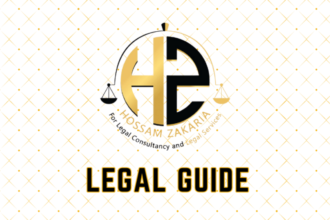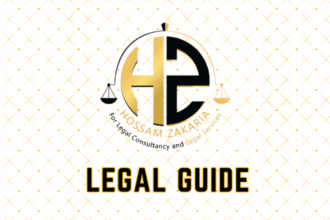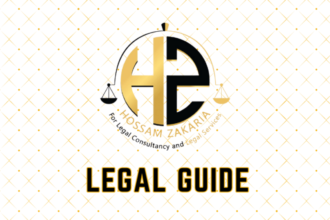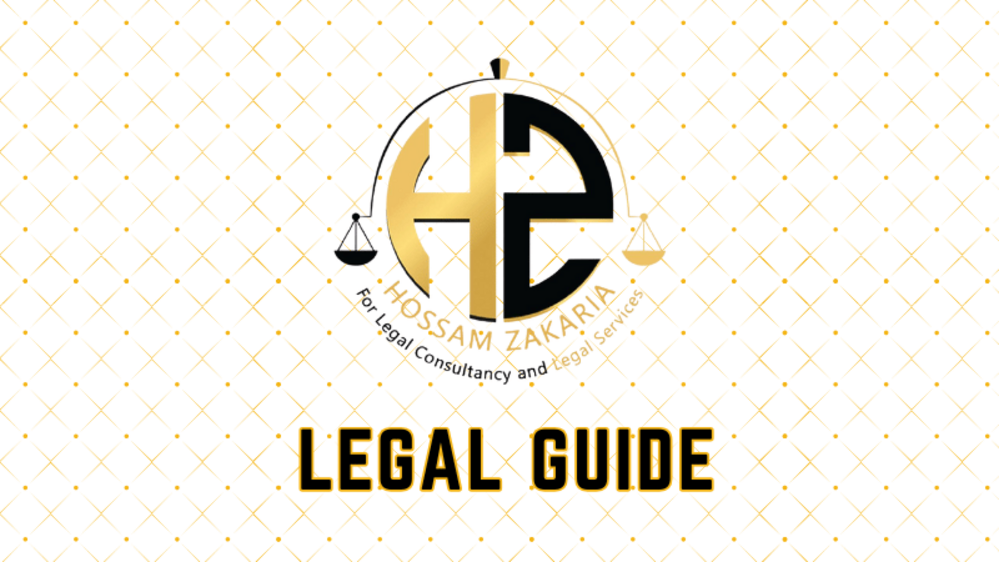Introduction: Arbitration in Context for UAE Enterprises
As global commerce continues to entwine the Gulf states, robust mechanisms for cross-border dispute resolution have gained paramount significance, especially arbitration. Qatar’s transformation of its arbitration landscape through Law No. 2 of 2017, known as the Qatar Arbitration Law, mirrors international standards and offers new avenues for foreign investors, UAE-based corporations, and legal practitioners navigating commercial disputes in the region. Recent shifts in the UAE’s own approach to commercial arbitration and judicial cooperation with Qatar have further underscored the strategic need for informed legal guidance in this evolving landscape.
This article provides an in-depth consultancy-grade analysis of Qatar’s Arbitration Law, examining ramifications for UAE businesses, in-house counsel, and legal practitioners transacting or contracting with Qatari parties. Drawing on official government sources and recent legislative trends, we offer practical guidance for compliance, risk mitigation, and strategic dispute resolution planning, all within the context of the most current 2025 regulatory climate.
Table of Contents
- Understanding Qatar’s Arbitration Law: An Overview
- Key Legal Framework and Provisions
- Comparative Analysis: Qatar and UAE Arbitration Laws
- Practical Implications for UAE Businesses
- Case Study Applications and Hypotheticals
- Risks of Non-Compliance and Strategic Compliance Measures
- The Evolving Gulf Arbitration Landscape: Forward Outlook
- Conclusion: Key Takeaways and Action Points
Understanding Qatar’s Arbitration Law: An Overview
The Genesis of Modern Arbitration in Qatar
Qatar’s Arbitration Law (Law No. 2 of 2017), based substantially on the UNCITRAL Model Law, was enacted to modernize the country’s arbitration framework, aligning it with leading global jurisdictions and facilitating the facilitation of international business. The law applies to both domestic and international arbitrations conducted in Qatar, unless parties agree otherwise, and replaced outdated provisions of the Civil and Commercial Procedural Law.
Alignment with International Standards
Law No. 2 of 2017 establishes clear, transparent procedural rules intended to promote party autonomy, uphold due process, and support the enforceability of awards. The legislation explicitly recognizes arbitration agreements, delineates the conduct of proceedings, and provides for judicial support in specific circumstances, such as interim measures or evidence gathering.
Significance for the UAE Legal Community
Given the well-documented uptick in cross-border trade and joint ventures between the UAE and Qatar, particularly since the normalization of diplomatic relations, UAE entities now face a more predictable framework when including Qatar-seated arbitration clauses in their contracts. UAE legal practitioners advising regional clients must therefore be intimately familiar with the nuances and practical operation of the Qatari regime, particularly its convergence and divergence with the updated UAE Arbitration Law (Federal Law No. 6 of 2018).
Key Legal Framework and Provisions
Official Legal Foundations
The principal source for arbitration in Qatar is Law No. 2 of 2017 on the Issuance of the Law of Arbitration in Civil and Commercial Matters. Notable official points include:
- Scope: Applies to both domestic and international disputes, in civil and commercial matters, including disputes to which the State is a party (Article 2).
- Arbitration Agreement Requirements: Mandates a written instrument, including exchange by electronic means as per Article 7.
- Arbitral Tribunal Composition: No restriction on nationality; parties may freely determine the number and selection procedure (Articles 9–12).
- Procedural Rules: Broad party autonomy with minimum mandate for equal treatment and fair hearing (Articles 23, 25).
- Interim and Conservatory Measures: Tribunals may order such measures, enforceable by courts on application (Article 17).
- Arbitration Awards and Enforcement: Awards are binding and enforceable upon registration with the Qatari courts, subject to limited grounds for refusal (Articles 31–36).
Institutional Arbitration in Qatar
Parties may opt for ad hoc or institutional arbitration. The Qatar International Centre for Conciliation and Arbitration (QICCA) offers modernized rules patterned after international best practice. It is important for UAE-based clients to note that QICCA’s procedures may differ from those of the DIFC-LCIA or the Dubai International Arbitration Centre (DIAC).
Judicial Support and Court Intervention
The role of Qatari courts is primarily supportive, limited to areas such as the appointment or removal of arbitrators, interim measures, and enforcement. The Qatari legal system, following the promulgation of this law, has limited grounds for judicial challenge of awards, broadly echoing the Model Law regime, such as invalidity of the agreement, due process violations, or arbitrability.
Comparative Analysis: Qatar and UAE Arbitration Laws
Key Similarities and Differences
| Aspect | Qatar Law No. 2/2017 | UAE Federal Law No. 6/2018 |
|---|---|---|
| Model Law Basis | UNCITRAL Model Law | UNCITRAL Model Law |
| Application Scope | Domestic & International | Domestic & International |
| Form of Arbitration Agreement | Written or electronic (Article 7) | Written or electronic (Article 7) |
| Judicial Intervention | Limited/supportive; appointment, evidence, interim measures | Limited/supportive; appointment, evidence, interim measures |
| Interim Relief | Tribunals may grant; enforceable via courts | Tribunals may grant; enforceable via courts |
| Recognition & Enforcement | Qatari courts, limited refusal grounds (Article 35) | UAE courts, limited refusal grounds (Article 54) |
| Institutional Options | QICCA, other forums | DIAC, DIFC-LCIA, ADGM, others |
Impact of Recent Legal Updates
Both legislations were designed to reassure foreign investors and enhance the Gulf’s reputation for efficient dispute resolution. Recent updates in both jurisdictions reinforce party autonomy, confidentiality, and judicial deference to properly executed arbitration awards—key factors for enterprises choosing between regional seats.
Practical Insight:
For UAE entities transacting in Qatar, careful drafting of choice of law, seat, and arbitral institution provisions is critical. Broadly similar legal frameworks now allow parties to optimize for factors such as neutrality, procedural predictability, and post-award enforcement strategies.
Practical Implications for UAE Businesses
Cross-border Contracting and Dispute Planning
Cross-border commercial ventures—from construction and real estate investments to joint ventures and service contracts—routinely involve UAE and Qatari parties. Given the overhauled arbitration regime, UAE businesses should consider:
- Inclusion of clear and enforceable arbitration clauses referencing the Qatari law or QICCA, or opting for neutral jurisdictions such as the DIFC or ADGM.
- Negotiation of procedural rules, number of arbitrators, language of proceedings, and explicit provisions for interim measures.
- Provision for institutional rather than ad hoc arbitration to leverage established rules and administrative support.
Enforcement of Arbitral Awards: A Strategic Priority
The post-award phase requires specialized attention. While both the UAE and Qatar are signatories to the New York Convention on the Recognition and Enforcement of Foreign Arbitral Awards (1958), local procedural idiosyncrasies persist. Particularly, Qatari courts require formal registration (“exequatur”) of the award, and could review awards against public order, arbitrability, or procedural defects.
Visual Suggestion: Placement of a process flow diagram outlining the award enforcement journey in Qatar and the UAE.
Best Practice Drafting and Due Diligence
- Explicitly state the law governing the arbitration agreement separate from substantive law, to avoid ambiguity.
- Conduct thorough due diligence on potential Qatari counterparties’ financial standing and the likely enforceability of arbitration awards in their jurisdiction.
- Ensure corporate authorisation for the arbitration agreement, as Qatari law places heavy emphasis on party capacity and representation at the formation stage.
Case Study Applications and Hypotheticals
Case Study 1: Construction Consortium Dispute
Scenario: A UAE-based construction conglomerate and a Qatari sovereign entity sign a multibillion-dirham project agreement with an arbitration clause stipulating Qatar as the seat and QICCA rules. A dispute over project delays arises.
- Legal Issue: The Qatari party challenges the arbitration clause’s validity, citing alleged lack of board approval by the UAE company.
- Qatari Law Analysis: Qatari courts strictly interpret authority and representation in arbitration agreements. The result: Potential nullification of the arbitration clause if formal corporate approval evidence is insufficient.
- Consultancy Insight: UAE parties should maintain robust documentary trails of corporate authorization and board resolutions to preempt such challenges in Qatari proceedings.
Case Study 2: Post-Award Enforcement and Judicial Scrutiny
Scenario: A UAE-based supplier wins a substantial arbitral award against a Qatari buyer. Upon seeking enforcement in Qatar, the buyer objects, alleging bias and procedural irregularities in the arbitral process conducted abroad.
- Legal Issue: Grounds for refusal under Article 36 mirror those under the New York Convention but can be expansively interpreted by national judges.
- Consultancy Insight: Parties anticipating enforcement should meticulously document all procedural steps, preserve impartiality, and obtain written waivers of objections during the arbitration process when possible.
Risks of Non-Compliance and Strategic Compliance Measures
Principal Risks
- Clawback of arbitral awards due to poorly drafted or unauthorized arbitration clauses.
- Significant delays or expense in recognition and enforcement due to procedural missteps.
- Potential exposure to adverse “public policy” interpretations at the enforcement stage.
- Damage to commercial reputation and long-term business disruption.
Consultancy-Grade Compliance Checklist
| Step | Recommended Measure | Risk Addressed |
|---|---|---|
| 1 | Confirm express, lawful board authorization for arbitration agreements | Grounds for invalidation |
| 2 | Clearly define governing law and jurisdiction provisions | Avoid ambiguity and forum shopping |
| 3 | Opt for recognized arbitral institutions where possible | Procedural certainty |
| 4 | Document all proceedings and party notices | Minimize challenge grounds |
| 5 | Understand local enforcement processes and thresholds | Expedite post-award relief |
Visual Suggestion: Placement of an infographic summarizing top compliance pitfalls and remedies for easy client reference.
The Evolving Gulf Arbitration Landscape: Forward Outlook
Integration of Technology and E-Arbitration
Qatar’s Arbitration Law explicitly recognizes electronic exchanges and signatures, responding to the rise of digital commerce and the post-pandemic pivot to remote proceedings. UAE businesses leveraging advanced contracting technologies must ensure that their digital agreements meet the evidentiary standards stipulated in Qatari law.
Deepening Judicial and Legislative Harmonisation
The recent increase in judicial cooperation between the UAE and Qatar, including new Memoranda of Understanding concerning judicial assistance and enforcement, heralds a more cohesive regional dispute resolution climate. Practitioners expect continued convergence on key issues such as interim relief and expedited procedures in line with global standards.
Anticipated Regulatory Enhancements
Both Qatar and the UAE are likely to introduce further refinements in their arbitration laws, reflecting best practices from UNCITRAL and other international forums. Future amendments may simplify enforcement mechanics and provide greater commercial certainty for foreign investors.
Conclusion: Key Takeaways and Action Points
For UAE businesses and legal counsel, successful navigation of Qatari arbitration law in 2025 demands more than surface-level familiarity. Robust contractual drafting, careful institution and seat selection, and proactive compliance with documentary and procedural requirements are now essential best practices.
The ongoing harmonisation of dispute resolution protocols across the Gulf provides both new opportunities and new compliance mandates. By adapting strategies in line with these legal evolutions, UAE entities can better harness arbitration’s advantages—efficiency, confidentiality, and global enforceability—while minimizing risk and unlocking greater cross-border potential.
For professional legal advisors, ongoing monitoring of further legal updates, judicial interpretations, and regulatory guidance from both the UAE and Qatari Ministries of Justice will remain critical. As the landscape continues to evolve, early and expert intervention will distinguish successful outcomes from avoidable pitfalls in Gulf arbitration matters.



